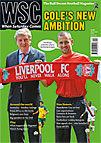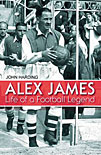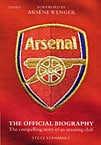 Dear WSC,
Dear WSC,
I’m sending out a plea to WSC readers to see if they can tell me of a top goalscorer who was less popular with his own club’s fans than Bournemouth’s Brett Pitman? As Steve Menary’s entry for the Cherries stated in your Season Guide (WSC 283), he was always the first to be moaned at by the Dean Court crowd despite banging in 26 League goals last season (not to mention the 30 before that since making his debut as a teenager in 2005). Granted, Brett was hard to love. His body language was a combination of seemingly uninterested slouch with an unathletic, head-lolling waddle. His reluctance to jump for or chase down over-hit passes was an obvious crime in the eyes of the average football fan. I guess his arm-waving, sour-faced tantrums when not receiving the exact ball he wanted from team-mates cemented his distant relationship with the fans. I can’t recall a single chant about Brett – an astonishing feat when less talented strikers like Alan Connell (13 goals in over 100 games) were lauded on the terraces. Pitman had been at the club since he was 16 years old, scored spectacular goals ever since and never demanded a move – hardly the sort of pantomime mercenary or hapless donkey that usually attracts the ire he received. After signing for Bristol City, his valedictory interview with the local paper was not a fond farewell: “Pitman Fires Broadside At Cherries Boo-Boys” read the headline. So can any other readers suggest a less-loved goalscorer at their club? Not just one that left for a rival or did a silly celebration in front of his former fans when scoring for his new team – but one with a consistent record of excellence met with lukewarm indifference at best?
Simon Melville, London
Search: 'Herbert Chapman'
Stories
 With a new season comes an array of redesigned kits. Mark Segal has spotted a strong nostalgic influence in this year's crop and wonders if we couldn't just have a little more innovation
With a new season comes an array of redesigned kits. Mark Segal has spotted a strong nostalgic influence in this year's crop and wonders if we couldn't just have a little more innovation
When the new Premier League season kicks off in the middle of August, 18 out of the 20 teams will be playing in new strips. Over the past few seasons the official kit unveiling has become as much a part of pre-season routine as money-spinning tours to far-away places and Barcelona’s pursuit of Cesc Fàbregas.
 Life Of A Football Legend
Life Of A Football Legend
by John Harding
DB Publishing, £16.99
Reviewed by Terry Staunton
From WSC 284 October 2010
Transfer negotiations between the two world wars may not have been as rife with the creative – and occasionally dubious – wheeler-dealings of modern times, but there were still a few inspired solutions to securing the services of a top player. In 1929, when Alex James was looking for a move away from a supposedly tight-fisted Preston to what he considered a bigger and more ambitious club, he resisted overtures from both Liverpool and Manchester City before Arsenal stepped in with an ingeniously structured offer.
 On the 25th anniversary of the start of the national miners’ strike, Jon Spurling looks at the industry’s long-established links with professional football that have since been swept away
On the 25th anniversary of the start of the national miners’ strike, Jon Spurling looks at the industry’s long-established links with professional football that have since been swept away
Twenty-five years ago football and coal mining had in common the fact that Margaret Thatcher clearly didn’t see a long-term future for either within British society. In 1985, a Socialist Worker article drew parallels between the 1984 “Battle of Orgreave”, where around 10,000 pickets squared up to as many police, with the violence at Kenilworth Road during a Luton v Millwall FA Cup tie in 1985: “The images of violence and of raging anger (although those witless football fans have no cause at all) lead us to question whether the fabric of society is close to collapse in Thatcher’s Britain.” Two years after the strike ended, at a time when the minister for sport Colin Moynihan mooted the idea of a compulsory membership scheme to curb hooliganism, a letter to the Guardian expressed a fear that “a high handed government, with sheer contempt for the working classes, is, if one looks at recent events, attempting to utterly destroy two bastions of working class Britain.” To take the comparison to its conclusion, both industries had been irrevocably altered by the late 1980s. In the wake of the Taylor Report into the Hillsborough disaster, and Italia 90, football would become gentrified, and machines replaced workers as colliery closures continued apace. “The working class’s links with both football and mining were, directly or indirectly, rightly or wrongly, severed by Thatcher’s government,” remarked former Labour MP Roy Hattersley in 1992.
 by Steve Stammers
by Steve Stammers
Hamlyn, £18.99
Reviewed by David Stubbs
From WSC 268 June 2009
The very first match played by Arsenal Football Club took place on December 11, 1886, after a whip round a few days earlier at the Royal Oak pub in Woolwich had raised the necessary funds (three shillings and sixpence) to purchase a football. The “pitch” was on the Isle of Dogs. It was oblong, with boundaries provided by adjoining back gardens. An open sewer ran across the playing surface.